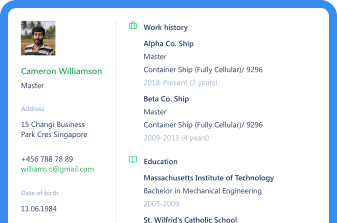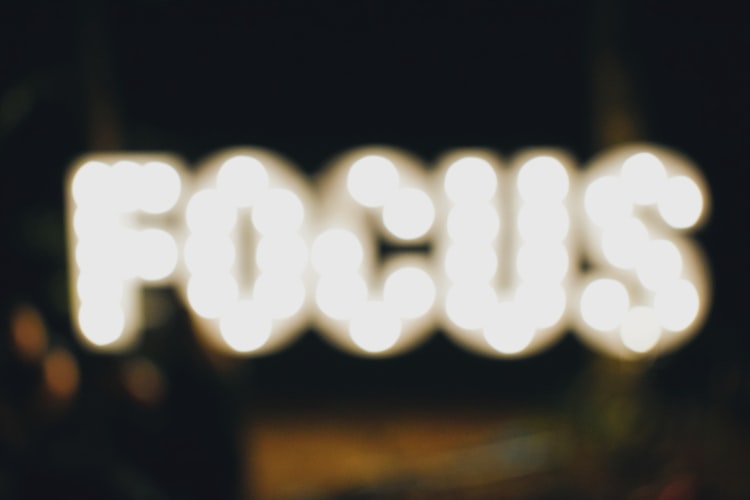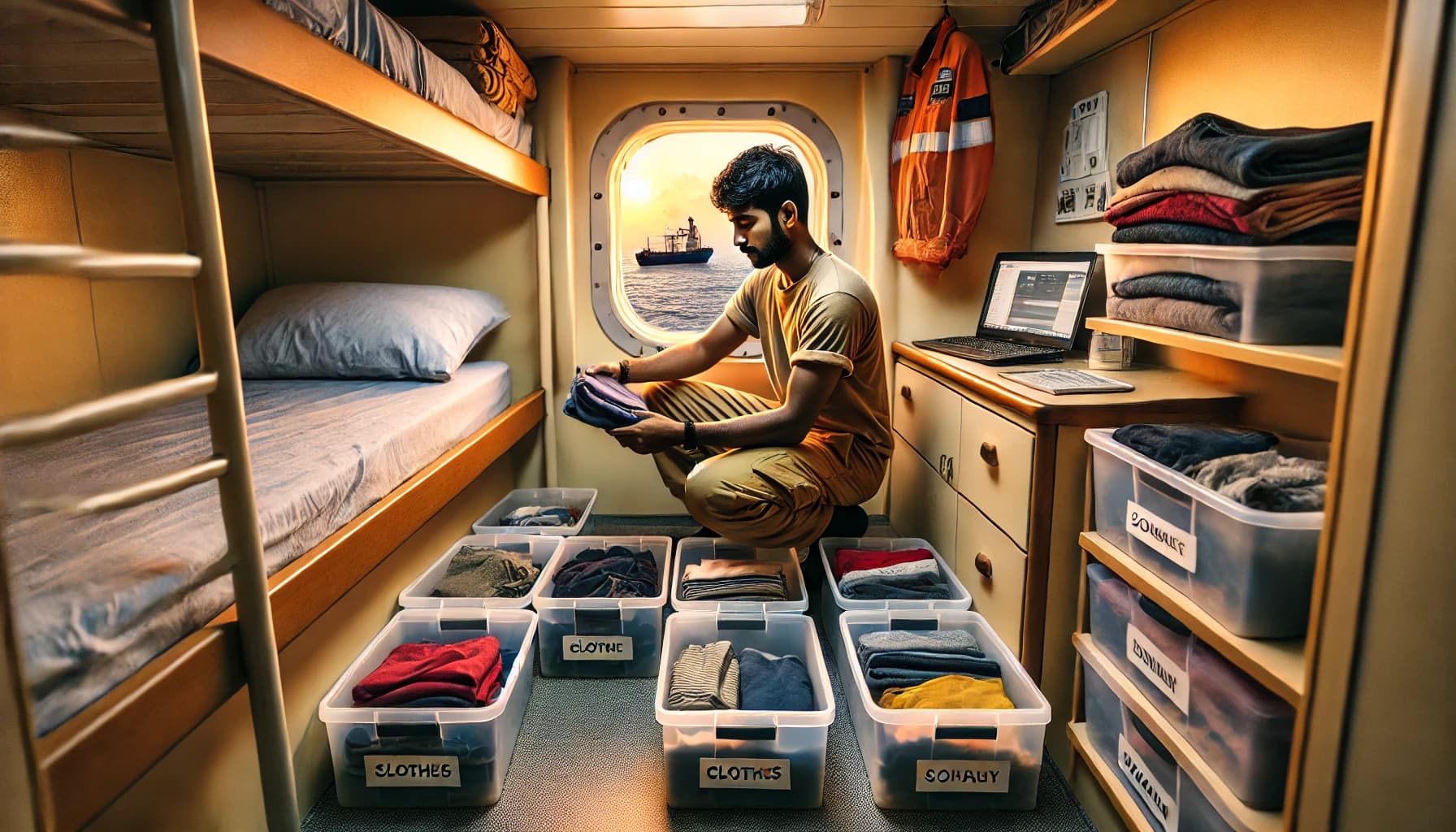If you’re someone who is working in a seafarer job, you don’t need us to tell you that it can be challenging. Working on a ship can be both mentally and physically tiring - both things that can take their toll on you as a professional mariner.
So when stress, a lack of energy and tiredness threaten to make life onboard your vessel feel like it’s getting too much for you to handle, how do you swing the pendulum back in the other direction and regain your focus, zest for life and your passion for your job?
In this blog post we’re going to look at some ways you can improve your physical and mental health and refocus and re-energize yourself so that working on a ship, once again, becomes something you enjoy and not something you dread waking up to each morning (or evening...)
How to stay focused when you’re working in a seafarer job
You may well start each contract with great intentions. You embark with your luggage and a promise to yourself that this time you’re going to make time to work out, you’re going to read lots of books in your downtime and you’re going to create a fun community-like atmosphere onboard.
But as days turn into weeks and weeks turn into months, how many of you can honestly say that you make time to nurture your mental and physical health while you’re onboard and working in your job at sea?
Read more: 4 Wellness Tips for Officers of the Watch
Let’s look at a few ways you can remain focused on your work and on your goals to take better care of yourself while you’re working on a ship.

Take baby steps and do what you enjoy
If you jump in feet first with grand declarations to work out every single day for at least an hour, sorry to break it to you but you’re setting yourself up for failure.
Unless you’re the most incredibly disciplined person, the reality is, this isn’t a feasible target to set yourself. It might look good on paper but what happens if your watch or shift changes or you need to work extra hours?
Just a slight change in circumstances can make it all too easy to lose momentum and give up. So instead of pledging to work out every day for an hour at a time, start small and aim for two or three workouts a week.
Read more: 11 Ways to Stay Physically & Mentally Fit Onboard
Or maybe working out in the ship gym isn’t your thing but you know that you could make time for a walk once a day. If that’s the case, don’t beat yourself up about not wanting to deadlift weights. Instead get out on deck for a brisk walk before or after you start work.
Likewise if you’ve promised yourself to read more while you’re working on your ship, forcing yourself to read four chapters a day is not going to be sustainable. Instead read for as long as you like - even if it’s just a page or two before you go to sleep.

The point is, we’re all a lot more likely to stick to something and make it a routine when we enjoy that thing. Placing undue pressure on yourself isn’t going to work in the long term so focus on what makes you feel good and that in turn will translate into a doable action.
Don’t get sidetracked by unimportant distractions
When you’re working in a seafarer job, staying focused, engaged and motivated is crucial, not only for your own wellbeing but also for your safety and that of your fellow crewmates - as well as the vessel and cargo.
Read more: 7 Tips for Better Mental Health for Seafarers
So what constitutes a distraction when you’re working on a ship? Let’s start with the obvious one: technology.
Whether you take just your phone onboard with you or you pack a whole host of tech from games consoles and Kindles to laptops and tablets, it can be tempting to while away your downtime and your meal breaks with technology.
We’re not saying that you should ditch the tech altogether - there are some great apps out there that can help you stay focused, whether on your professional or fitness goals.
For example, there are any number of apps now that can help you meditate, keep a clearer mind, count your reps in the gym, gain knowledge on topics useful to seafarers, find and apply for your next job at sea (spoiler - that will be the Martide seafarer app!) and more.
And of course, social media makes it far easier to stay in touch with your family and friends ashore while you’re working away at sea.
And talking of social media, why not follow us on Facebook, LinkedIn and Twitter / X!?

But you do need to make sure that you’re not mindlessly scrolling and disengaging from your reality. Try limiting the number of apps you have on your phone or tablet and only download those that are genuinely useful while you’re onboard.
Put it this way: there are plenty of apps that can help you build better habits. But using technology mindlessly should not become the habit itself.
Read more: How to Use Social Media Wisely When You Work in Jobs at Sea
Why being focused is important in a seafarer job
As we mentioned earlier, being focused and present is crucial when you’re working in a job at sea because when you’re alert, you are more likely to spot warning signs and avoid mishaps and accidents.
But it also helps you be a better crewmate. Because, let’s face it; no one wants to work alongside someone who is checked out, always has their nose stuck in their phone, is negative or not pulling their weight because they’re so unfocused.
When you’re present and have a healthy mind and body you’re far more likely to show up and be your best self at work every day, watch or shift.
As someone working in a seafarer job your wellbeing should be one of your top priorities. Therefore, pick a goal - whether it’s to improve your fitness levels or to complete an online seafarer training course to further your career - and make sure that you remain focused on achieving it.
As we’ve covered, by identifying achievable targets that you will enjoy the journey towards and by not getting sidetracked by distractions, you will make the most effective use of your time onboard your vessel.

Eve Church
Eve is Martide's content writer, publishing regular posts on everything from our maritime recruitment and crew planning software to life at sea. Eve has been writing professionally for more than two decades, crafting everything from SEO-focused blog posts and website landing pages to magazine articles and corporate whitepapers.
UK




